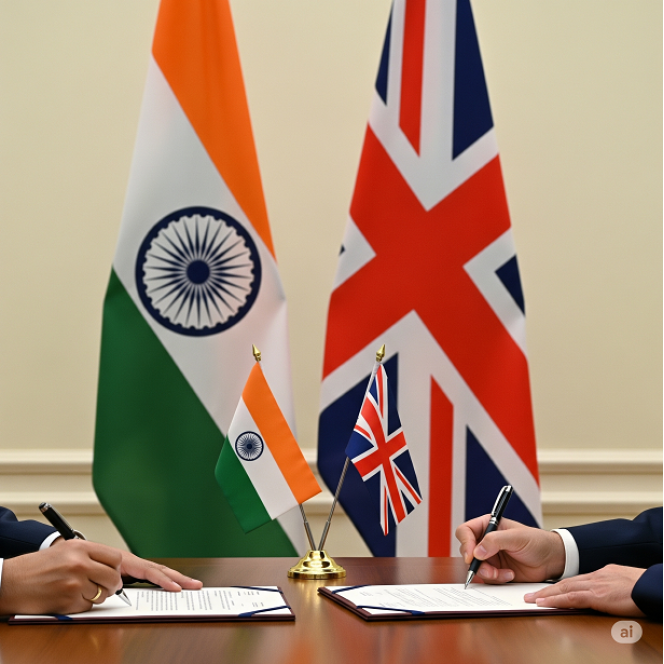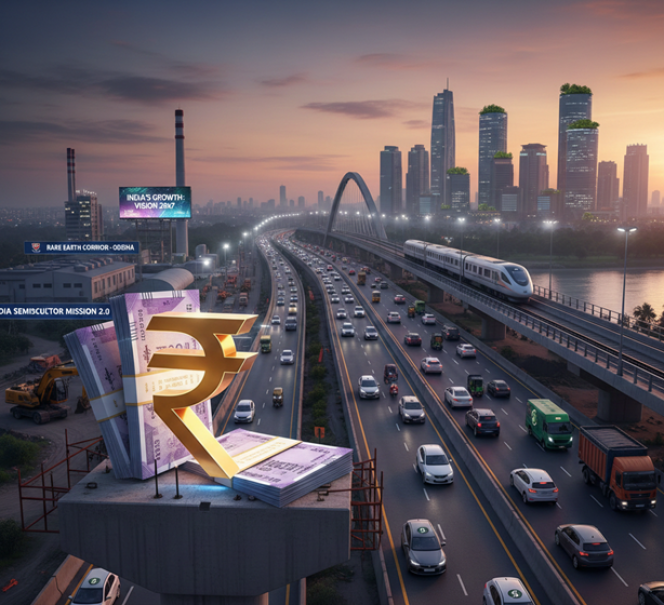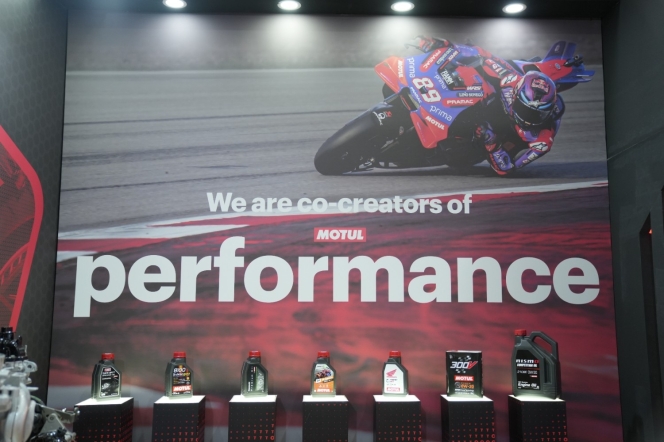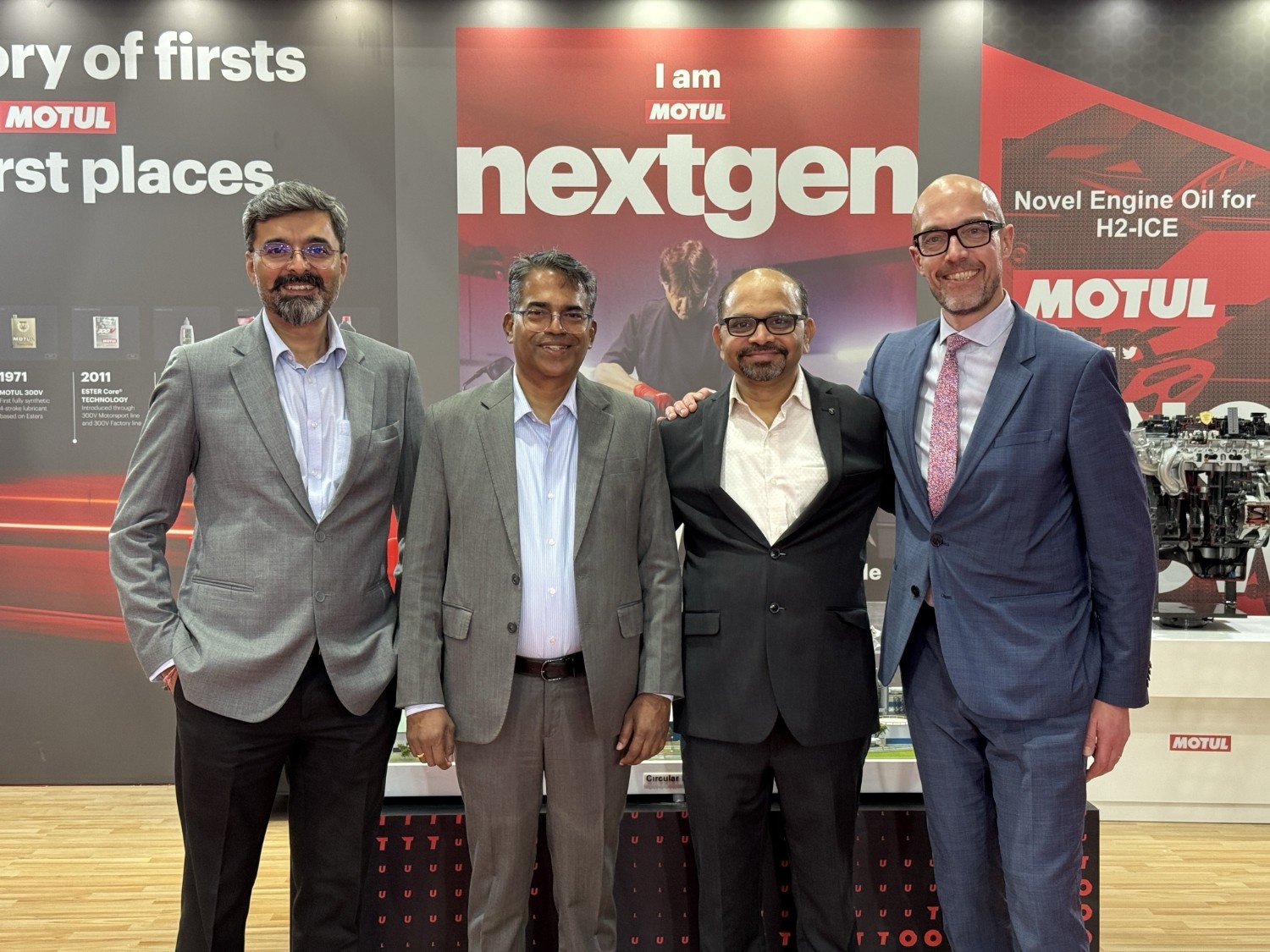- India
- UK
- Free Trade Agreement
- Dr Anish Shah
- Mahindra & Mahindra
- Sudharshan Venu
- TVS Motor Co
- Norton Motorcycles
UK-India Trade Deal Unlocks GBP 6 Billion In Automotive And Advanced Manufacturing Investment
- By MT Bureau
- July 24, 2025

The United Kingdom has announced nearly GBP 6 billion in new investments and export wins tied to the UK-India Free Trade Agreement (FTA), with significant implications for the automotive, aerospace and advanced manufacturing sectors. The deal, signed during UK Prime Minister Keir Starmer’s meeting with Indian Prime Minister Narendra Modi, is expected to create over 2,200 jobs in the UK.
Under the FTA, India’s average tariff on UK products will drop from 15 percent to 3 percent, with specific cuts for key sectors. Automotive tariffs of up to 110 percent will be reduced to 10 percent under a quota system, while aerospace tariffs (previously as high as 11 percent) will be eliminated. Tariffs on electrical machinery will also fall, potentially halved or brought to zero, depending on product classification.
The UK government estimates the trade deal will increase UK exports to India by nearly 60 percent and raise bilateral trade by 39 percent by 2040, compared to current projections without the agreement.
British automotive, aerospace, and advanced manufacturing players are among the biggest beneficiaries:
Rolls-Royce and Airbus will begin delivery of aircraft powered by Rolls-Royce engines to Indian airlines as part of contracts worth around GBP 5 billion. The orders are expected to support jobs in Filton, Broughton, and Derby.
International Aerospace Manufacturing (IAMPL) — a joint venture between Rolls-Royce and Hindustan Aeronautics — is investing GBP 30 million to expand its facility in Hosur, India.
Johnson Matthey will invest GBP 4 million in new plants at Taloja and Panki, supporting up to 20,000 jobs in India during construction, alongside over GBP 20 million in secured contracts for engineering and catalyst supply.
Wilson Power Solutions will invest GBP 21 million in Chennai to expand transformer manufacturing capacity.
Helical Tech is committing GBP 5.72 million in overseas direct investment (ODI) to expand its Pune facility as a global supply hub.
The agreement also unlocks procurement opportunities in India’s clean energy market and improves market access for UK manufacturers across sectors such as components, electrical machinery, and mobility technologies.
On the export front, UK companies such as Carbon Clean, Occuity, Aurionpro, DCube AI, and Kyzer Software are tapping into Indian demand for carbon capture, healthcare tech, AI, and fintech. Combined, their deals are set to contribute hundreds of millions in export value over the next five years.
Jonathan Reynolds, Business and Trade Secretary, UK, said, “The almost GBP 6 billion in new investment and export wins announced today will deliver thousands of jobs and shows the strength of our partnership with India.”
The FTA also paves the way for long-term collaboration in defence manufacturing, semiconductors, AI, quantum computing and other critical technologies.
The UK currently imports GBP 11 billion in goods from India annually. With liberalised tariffs, the government expects significant cost savings for UK firms importing automotive and advanced manufacturing components, aiding domestic production and supporting supply chain resilience.
Shailesh Chandra, President, SIAM and Managing Director, Tata Passenger Vehicles & Tata Passenger Electric Mobility, said, “The Indian automobile industry congratulates the Government of India for its tireless efforts in bringing the India–UK Free Trade Agreement (FTA) to fruition. This landmark development marks a significant step forward in strengthening India’s global economic engagement, particularly with developed economies. As two major economies enter a new phase of partnership, SIAM appreciates the Government’s extensive stakeholder consultations throughout the negotiation process. Concluding this transformative agreement amid global trade uncertainties reflects India’s growing leadership in shaping modern trade and investment frameworks.”
The commitments made by the Government of India on automobile sector tariffs strike a thoughtful balance—addressing consumer interests while supporting the broader goals of Indian industry. We view this agreement as part of a wider strategic engagement and believe it opens new avenues for collaboration and opportunity with a key global partner. SIAM remains committed to working closely with the Government of India to ensure the benefits of the agreement translate into greater growth, global competitiveness, and technological progress for the Indian automotive industry,” added Chandra.
Shradha Suri Marwah, President, ACMA, said, “The Automotive Component Manufacturers Association of India (ACMA) welcomes the signing of the India-UK Comprehensive Trade Agreement as a landmark development in the bilateral relationship between the two nations. This agreement is poised to usher in a new era of economic cooperation, fostering greater market access, technology partnerships and value chain integration between the Indian and British automotive industries. The CETA is expected to benefit the Indian auto component sector through enhanced opportunities for exports, streamlined regulatory processes, particularly in key areas such as electric mobility, precision engineering and lightweight materials. Indian MSMEs, which form the backbone of our industry, stand to gain from the liberalised terms of trade and improved access to UK markets. We are hopeful that the agreement will also promote collaboration in R&D, skilling and innovation, especially in green and digital technologies – areas that are crucial for our sector’s long-term competitiveness and sustainability. ACMA congratulates the government of India and the United Kingdom for their vision and commitment in bringing this agreement to fruition. We look forward to working with our counterparts in the UK to realise the full potential of this partnership, and to strengthen our collective contribution to global automotive value chains.”
Dr Anish Shah, Group CEO and MD, Mahindra Group, said, “The landmark trade agreement between India and the UK marks a transformative moment in the global economic landscape. It’s not just a win for trade, but a blueprint for a modern, values-led partnership that puts innovation, sustainability, and inclusive growth at the heart of global collaboration. At Mahindra, we believe deeply in the power of such cross-border partnerships to unlock economic potential, create high-quality jobs, and accelerate progress in future-facing sectors from green mobility and clean energy to digital technologies and advanced manufacturing. The UK-India Vision 2035 aligns closely with our own strategic priorities building resilient supply chains, investing in frontier technologies, and fostering a just transition to a low-carbon economy. As Indian industry becomes increasingly global in its footprint and ambition, we look forward to contributing meaningfully to this next chapter of UK-India cooperation.”
Sudarshan Venu, Managing Director, TVS Motor Company, said, “We are deeply inspired by Prime Minister Narendra Modi’s vision of Viksit Bharat and his unwavering commitment to making India a global manufacturing and design powerhouse. The signing of the India-UK Free Trade Agreement is a pivotal moment—it opens new frontiers for Indian companies to take ‘Make in India’ to the world. We are particularly excited given the launch of new Norton vehicles this year, which will benefit from the strengthening of trade links between India and the UK. It energises our global ambitions and strengthens our resolve to build world-class products and brands.”
A spokesperson for JLR said: “We welcome this free trade agreement between the UK and India, which over time will deliver reduced tariff access to the Indian car market for JLR's luxury vehicles. India is an important market for our British built products and represents significant future growth opportunities.”
Amit Kalyani, Vice-Chairman & Joint MD, Bharat Forge, said, “Congratulations to Prime Minister Narendra Modi on the historic India–UK deal signed yesterday! #IndiaUKFTA marks a breakthrough for India’s engineering and manufacturing industries, with zero-duty access on about 99% of tariff lines covering almost 100% of trade value. Indian manufacturers can now tap into the UK market with greater competitiveness, improving their global footprint. I’d like to extend my appreciation to Hon’ble Minister of Commerce and Industry, Piyush Goyal ji for his pivotal roles in facilitating this partnership. I look forward to seeing the positive impact of this agreement on trade, investment, and economic growth in both the countries.”
- January 2026
- sales
- Hero MotoCorp
- TVS Motor Company
- Royal Enfield
- B Govindarajan
- Eicher Motors
- Mahindra & Mahindra
- Tata Motors Passenger Vehicles
- Hyundai Motor India
- Toyota Kirloskar Motor
- JSW MG Motor India
- Kia India
- Tarun Garg
- Nalinikanth Gollagunta
- Atul Sood
- Tata Motors Commercial Vehicles
Indian Automotive Sector Starts 2026 With Robust January Wholesales Growth
- By MT Bureau
- February 01, 2026

The Indian automotive industry has commenced the 2026 calendar year on a high note, with automakers across two-wheeler, passenger vehicle and commercial vehicle segments reporting significant YoY wholesale growth for January. The performance reflects a resilient domestic market and a burgeoning recovery in international exports.
The two-wheeler sector saw massive volume gains, spearheaded by Hero MotoCorp, which recorded dispatches of 557,871 units, marking a robust 26 percent growth compared to 442,873 units in January 2025. This performance marks the company’s 25th consecutive year of market leadership. TVS Motor Company followed with a 30 percent increase in domestic two-wheeler sales, reaching 383,262 units, while its electric vehicle (EV) wing grew by 50 percent to 37,756 units.
Royal Enfield achieved a significant milestone, surpassing 1 million year-to-date sales in just 10 months, posting January sales of 104,322 motorcycles – a 14 percent YoY increase, which includes 93,781 units in the domestic market and 10,541 units exported.
B. Govindarajan, Managing Director, Eicher Motors and CEO, Royal Enfield, said, "The new year has begun on a positive note for Royal Enfield – extending the strong momentum from the previous quarter and marking four consecutive months of healthy double-digit growth. We have crossed 1 million motorcycle sales in this financial year across the globe and also crossed 100,000 motorcycle sales in exports."
In the passenger vehicle (PV) segment, Mahindra & Mahindra reported a 25 percent growth in utility vehicles, selling 63,510 units domestically. Tata Motors Passenger Vehicles saw a dramatic 47.1 percent rise in total sales (including EVs) to 71,066 units.
Hyundai Motor India achieved its highest-ever monthly domestic sales of 59,107 units, up 9.5 percent, while Toyota Kirloskar Motor registered 30,630 units, representing a 17 percent YoY growth. Kia India also started the year strong with 27,603 units, a 10.3 percent increase and JSW MG Motor India grew 9 percent with 4,843 wholesale units.
Honda Cars India reported domestic wholesales of 6,193 units and 748 units in exports. These figures follow a January 2025 performance where the company registered 7,325 domestic units and 4,979 units in exports.
The current sales volume is supported by demand for the Honda Amaze, alongside steady contributions from the City and Elevate models.
Tarun Garg, MD & CEO, Hyundai Motor India, said, "January 2026 marks a defining chapter in Hyundai Motor India’s journey. Achieving our highest-ever monthly domestic sales of 59,107 units... reflects not only Hyundai’s brand leadership but also the collective strength of our people, partners and customers."
Nalinikanth Gollagunta, CEO, Automotive Division, Mahindra & Mahindra, said, "Building on the strong momentum of last year's performance, we began the year on a strong note in January... On 14th January, we opened bookings for XUV7XO and XEV 9S clocking 93,689 bookings for a booking value of INR 205 billion - a record-breaking milestone in just 4 hours."
Atul Sood, Senior Vice-President, Sales & Marketing, Kia India, said, "The encouraging start to 2026 reflects the continued trust customers place in the Kia brand. The positive response to the new-generation Seltos, steady demand for the Sonet, and growing popularity of the Carens Clavis and Clavis EV, underline the strength and balance of our portfolio."
Kunal Behl, Vice President, Marketing & Sales, Honda Cars India Ltd, said: “The year has begun on a strong note, supported by a healthy sales momentum. The Honda Amaze continues to bring in strong demand for its value for money offering along with the City and Elevate that contribute steadily to the overall business. We remain confident of sustaining this positive momentum in the coming months.”
The commercial vehicle (CV) sector also demonstrated strength, particularly in heavy and light cargo segments. Tata Motors reported total CV sales of 38,844 units, up 29.1 percent from 30,083 units in the previous year. Within this, Heavy Commercial Vehicle (HCV) trucks saw the sharpest rise at 41.2 percent. Mahindra’s domestic CV sales grew by 22 percent to 27,656 units, driven largely by the LCV 2T–3.5T category.
Union Budget 2026-27: Supply Chain Resilience, Infra Push To Drive Auto Industry Growth
- By MT Bureau
- February 01, 2026

In a strategic pivot from direct consumer subsidies to foundational supply-chain resilience, the 2026-27 Union Budget, presented by Finance Minister Nirmala Sitharaman, focuses on bolstering the structural integrity of the Indian automobile industry.
A cornerstone of this year’s fiscal policy is the massive infrastructure and logistics push, highlighted by the development of the Dankuni-Surat Dedicated Freight Corridor and the operationalisation of 20 new national waterways. These initiatives, alongside a coastal cargo promotion scheme aiming to double the share of waterway freight to 12 percent by 2047, are designed to drastically lower logistics costs and ease the movement of components across the country.
Simultaneously, the government is reinforcing the industry's backbone by establishing a INR 100 billion SME Growth Fund to provide long-term capital for auto-component MSMEs, while enhancing liquidity through the Trade Receivables Discounting System (TReDS) and easing regulatory hurdles via ‘Corporate Mitras’ in Tier-II and Tier-III cities.
To secure the future of high-tech mobility, the Budget further expands the India Semiconductor Mission (ISM 2.0) to include domestic equipment manufacturing and chip IP, while nearly doubling the allocation for the Electronics Components Manufacturing Scheme to INR 400 billion. This technological drive is matched by a robust commitment to the electric vehicle (EV) ecosystem, specifically through the creation of ‘rare earth corridors’ in Odisha, Kerala, Andhra Pradesh and Tamil Nadu. These hubs will provide plug-and-play ecosystems to insulate the industry from global mineral volatility and supply curbs. Complementing this is a series of customs duty exemptions on capital goods used for lithium-ion cell manufacturing and critical mineral processing, which is expected to drive down battery costs and encourage local gigafactory expansion. Finally, for the clean energy segment, the full excise duty exemption on the biogas portion of blended CNG offers immediate relief to fuel prices, marking a comprehensive effort to foster a self-reliant, sustainable, and cost-competitive automotive landscape in the wake of previous GST reforms.
Motul Charts Future Of Mobility With Advanced Fluids At SIAT Expo 2026
- By MT Bureau
- January 31, 2026

Motul India presented a comprehensive vision for the future of automotive fluids at SIAT Expo 2026, centred on innovation, sustainability and supporting the industry’s technological transition. The company’s exhibition was built around the event’s core theme of pioneering safe and sustainable mobility, demonstrating a strategic commitment to evolving alongside new vehicle architectures.
A cornerstone of this vision is the development of fluids for new propulsion systems. A keynote address by Dr Julien Plet, Global Head of R&D, elaborated on the critical role of innovative fluids for next-generation mobility. The company showcased its E-Gen series, engineered for the thermal management of electric vehicle components like motors, batteries and power electronics, positioning it as a critical solution for evolving electrified mobility. Simultaneously, for alternative fuels, Motul presented specialised lubricant formulations for hydrogen internal combustion engines, reflecting early and active research into diverse energy sources. This dual focus underscores a readiness to support the industry’s broad technological transition.

Further solidifying its technical credibility, Motul emphasised its race-to-road development philosophy. The exhibit featured OEM-validated products, including a lubricant with formal Mercedes-Benz approval and another born from collaboration with Toyota Racing Development. These examples illustrate how the company leverages the extreme demands of motorsport as a dynamic proving ground for future commercial technologies, rather than for immediate market launch.
Integral to its presentation was a strong sustainability narrative, exemplified by the NGEN lubricant range. This product line utilises base oils derived from re-refined materials, embodying circular economy principles and a long-term commitment to reducing environmental impact through responsible resource use.
Ultimately, by participating in the expo, Motul India reinforced its role as an innovation-led partner to the automotive ecosystem. With a robust global research backbone and deep industry relationships, the company showcased its structured approach to developing high-performance, sustainable fluids tailored to meet the specific demands of the Indian market as it advances.
Dr Plet said, “Motul’s research and development teams across geographies continue to focus on advancing lubricant performance for existing powertrains while developing technologies aligned with future mobility needs and local market conditions.”
Nagendra Pai, CEO, Motul India & South Asia, said, ‘’SIAT Expo is a key platform for future mobility, and Motul is proud to showcase its global innovation strength in India. By combining advanced technologies with local adaptability, Motul is ready to lead solutions across electrification, sustainability and alternative fuels.”
India-EU Ink Historic Trade Deal To Reshape Global Automotive Landscape
- By Nilesh Wadhwa
- January 27, 2026

In a move that signals a seismic shift in global trade dynamics, the European Union and India today concluded negotiations for a historic and ‘commercially significant’ Free Trade Agreement (FTA). As the largest deal ever brokered by either side, the pact creates a massive free trade zone encompassing 2 billion people and the world's second and fourth largest economies.
While the agreement spans sectors from agriculture to pharmaceuticals, it is the automotive industry that stands as the centrepiece of this industrial realignment.
Cracking the 110% tariff wall
For decades, European automakers have struggled against India’s formidable trade barriers. Under the new agreement, these hurdles are set to crumble. India has committed to a radical reduction in car tariffs, which currently sit at a staggering 110 percent. According to the official release, these duties will be gradually slashed to as low as 10 percent.
Furthermore, the deal provides a massive boost to the automotive supply chain. Tariffs on car parts – a critical sector for European manufacturers – will be fully abolished within a 5-to-10-year window. This move is expected to integrate Indian and European manufacturing hubs more closely than ever before.
European Commission President Ursula von der Leyen hailed the deal as a milestone for rules-based cooperation. "The EU and India make history today. We have sent a signal to the world that rules-based cooperation still delivers great outcomes," she said.
With a population of 1.45 billion and a GDP of EUR 3.4 trillion, India is currently the world’s fastest-growing large economy. This FTA grants European carmakers and industrial firms a ‘privileged access’ that no other Indian trading partner currently enjoys.
Beyond the finished vehicles, the deal addresses the broader industrial ecosystem:
- Machinery & Chemicals: Tariffs of up to 44 percent on machinery and 22 percent on chemicals will be mostly eliminated.
- SME Support: Dedicated contact points will be established to help smaller European component manufacturers navigate the Indian market.
- Intellectual Property: The agreement guarantees high-level protection for designs and trade secrets, providing the legal certainty required for high-tech automotive transfers and R&D investment.
The deal is not merely about volume; it is about the future of mobility. A dedicated chapter on trade and sustainable development focuses on climate change and environmental protection.
To support India’s transition toward sustainable industrialisation – a move critical for the electric vehicle (EV) sector – the EU intends to provide EUR 500 million in support over the next two years. Additionally, a new EU-India platform for climate action cooperation is slated to launch in early 2026, likely serving as a catalyst for joint ventures in green hydrogen and battery technology.
The EU expects the deal to double its goods exports to India by 2032, saving European businesses approximately EUR 4 billion per year in duties.
The path to implementation now moves to the legal and political stage. The negotiated texts will undergo legal revision and translation before being presented to the European Council and the European Parliament for consent. On the Indian side, the agreement will move toward formal ratification.
After nearly two decades of stop-and-start negotiations – beginning in 2007 and relaunching in 2022 – the road is finally clear for a new era of Euro-Indian industrial synergy.







Comments (0)
ADD COMMENT